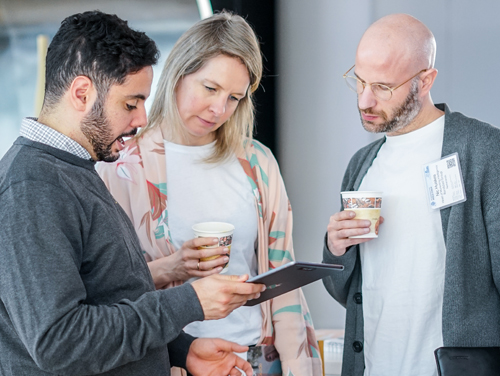Nic Huiskes (Randstad Group)
Why are you interested in neuromarketing?
I’ve conducted a lot of research studies in my life and one thing I always encountered, and still encounter, is that people’s intentions can be very different from their actual behavior. I always wanted to know if there isn’t a way to measure how people actually feel, and not how they say they feel. This issue has sparked my interest in neuromarketing as it can give you an insight into people’s brains, as brains don’t lie, and people sometimes do. In Randstad’s case, it would be valuable to use these insights to have more people inclined to use our services, and make people more emotionally loyal to our brands.
"I always wanted to know if there isn’t a way to measure how people actually feel, and not how they say they feel."
How does your company view Neuro?
Neuromarketing is kind of a sexy concept for Randstad in that it is different and a very interesting discipline. When we talk about one of our tv commercials where we used neuro methods, people are very interested to know more about it, and this almost serves as marketing on its own. People recognize themselves in that they often don’t want to talk about intentions and actual behaviour. It sometimes is difficult to talk about feelings and people are not always conscious of the fact that they feel things in a certain way. Randstad believes that if you can touch on the emotions of people rather than on functional elements, it becomes possible to create a more meaningful relation with them.
What would be your advice for companies that want to start using Neuro?
Neuro at this stage does not answer all questions and that is important to remember. Don’t be tempted to believe all the beautiful stories some companies tell you but stay realistic and think for yourself. Not all methods out there are suitable for the things you want to measure, and neuro does not replace all other types of research. Get advice from organisations that have more experience in using neuromarketing methods to find out what would work for you to reach your research goals.
What are your doubts/questions?
I don’t have any doubts about neuro, but I think it is important to stay realistic and to realize that neuro does not answer all your marketing questions. What I also noticed is that neuro has its origin in the medical field, where it is not an issue to stick electrodes on patients etc, where in the real world, this poses some issues.
What did you gain from attending the NMWF?
In my view, there were three parties present at the Neuromarketing World Forum; companies that are interested in neuromarketing (e.g. Lego, Uber, Facebook), who could gain insight into how other companies from different fields use neuro. Then there were the companies who offer neuromarketing tools. I found this very interesting, as I mostly knew fMRI, EEG and eye tracking. And then you had the academics, who offered the more realistic view. For instance, Ingrid Nieuwenhuis, neuroscientist at Facebook, talked about how we can come to an agreement, to create standards, so that if we measure something, we know we’re doing it correctly.
That’s also something I learned during the NMWF that there is a conference committee ensuring the quality of the presentations adhere to a certain standard. That I listened to parties that have experience in the field and that are looking for ways to disseminate and share their learnings. I found that very inspiring.

Add a comment